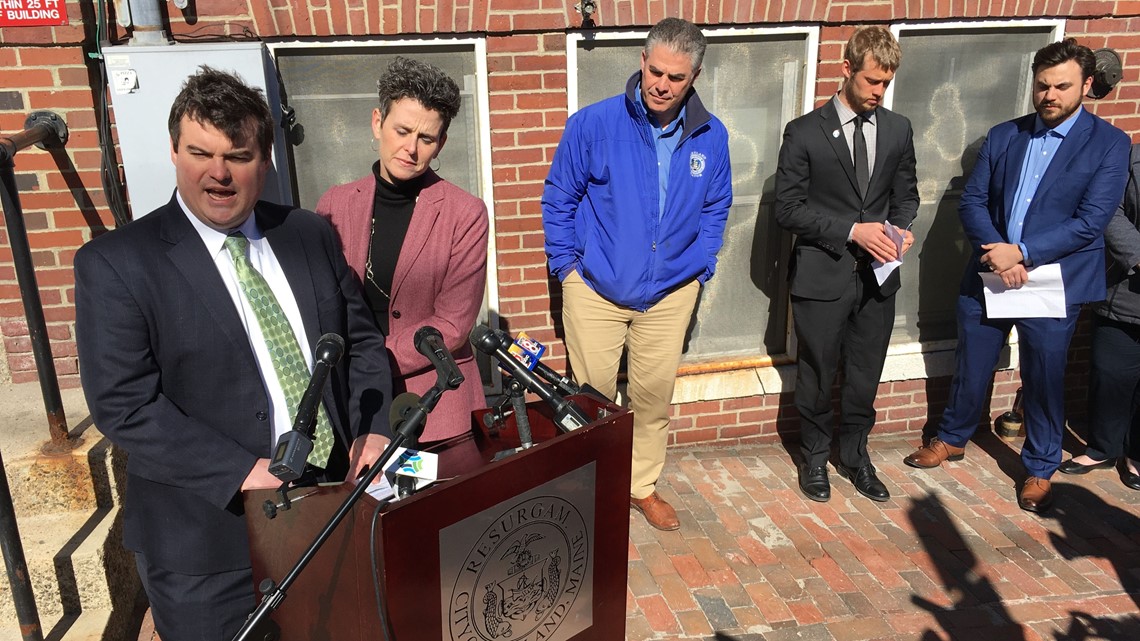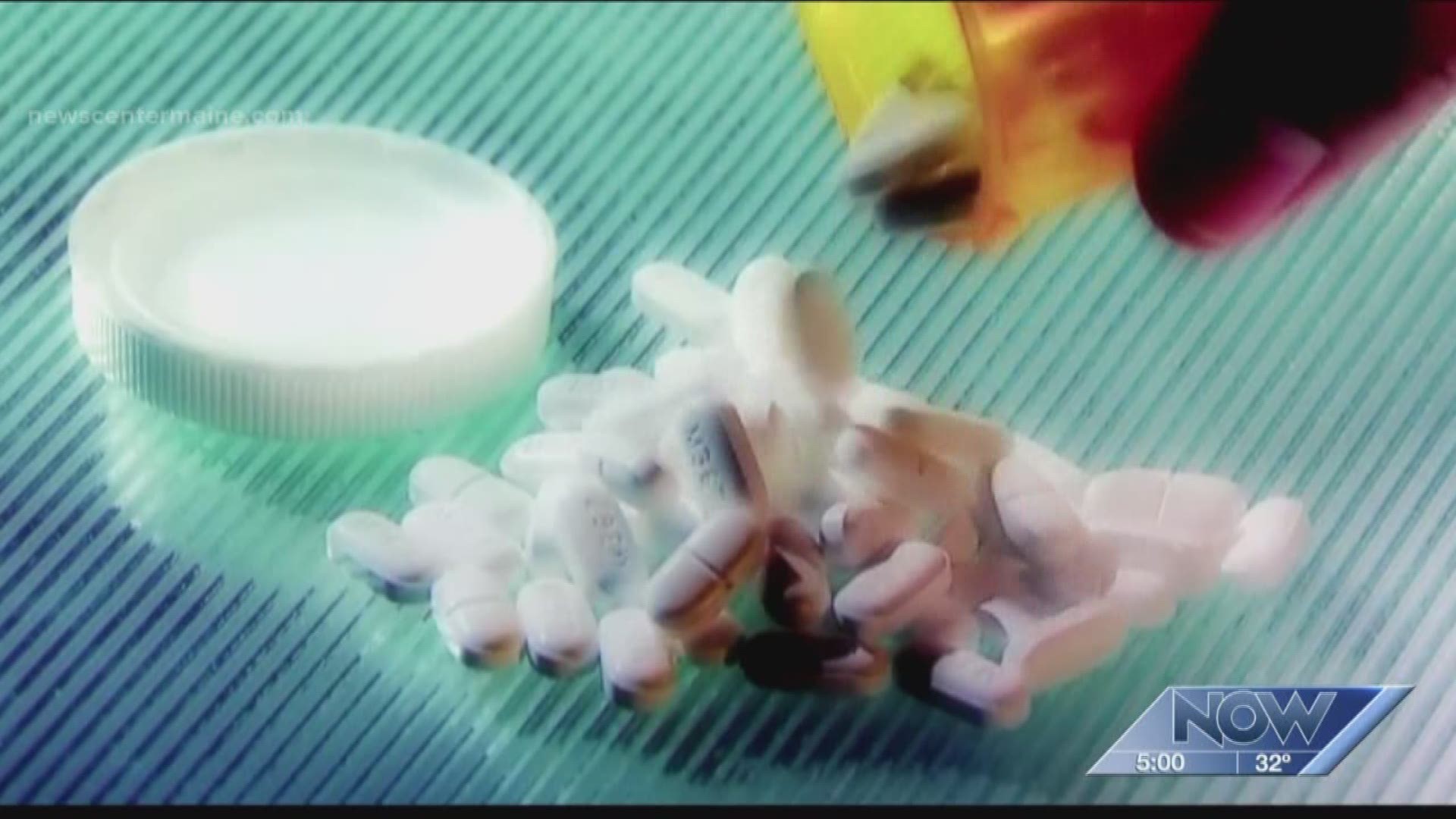PORTLAND (NEWS CENTER Maine) — The city of Portland filed a lawsuit Thursday against makers of opioids and prescribers in the face of a pervasive and growing opioid epidemic in Maine.
City officials filed the lawsuit in Cumberland County Superior Court in response to lives lost in the Portland community, shifting blame from users to makers.
The lawsuit, according to a release from city officials, essentially claims the defendants knew the dangers of opioids: the addictive properties and the waning effectiveness with increased use, causing people to misuse them.
"We want to go to these companies and hold them accountable," said Portland mayor Ethan Strimling. "They may have known how addictive they can be and how they can lead to more significant problems."
Opioids are considered effective treatments for short-term post-surgical, trauma-related and palliative pain.
The lawsuit alleges that at certain doses, opioids can slow the user's breathing, causing respiratory depression and, ultimately, death.
Seth Blais is in longterm recovery. He spent 10 years struggling with substance use disorder, and now writes column for the Portland Press Herald about the opioid epidemic and recovery process.
"I didn't start by using illicit drugs. I started with prescription medication," said Blais. "The damage has already been done, so it's important for us to hold those people accountable."
Furthermore, the lawsuit accuses the defendants reversed the popular and medical understanding of opioids through "a sophisticated and highly deceptive and unfair marketing campaign" beginning in the late 1990s, deepening around 2006 and continuing in present day.


The city contends in the lawsuit that the defendants prioritized profits over Portland residents' health and well-being and the loss of 57 lives from overdoses in 2017 alone.
According to officials, the Portland Police Department responded to 180 suspected opioid overdoses in 2016, and 266 in 2017 — a 41.5 percent increase. In addition, the force administered 103 doses of Narcan since officers were equipped with the drug in fall 2016. The Portland Fire Department administered 204 times in 2017, up from 143 doses the prior year.
The India Street Health Center also distributed nearly 2,800 doses to slightly more than 500 needle exchange program clients who reported reversing nearly 300 overdoses.
Portland's public works crews collected roughly 1,800 discarded needles across the city, officials said.
Meanwhile, the city is starving for more treatment and recovery resources. Maine's only non-hospital inpatient detox facility, Milestone Recovery, only has 16 beds, and they have to turn away people hoping to stop using drugs.
"There are moments where they're ready to enter treatment and receive services. If the door is closed at that moment, if they're told they can come back in three weeks and receive treatment, the door might as well never be open," said director Bob Fowler.
Mayor Strimling said that if they win the lawsuit, he would encourage 100 percent of the funds be directed towards the city's treatment and recovery resources.
The defendants include, among others, Purdue Pharmaceuticals and its affiliates; Cephalon, Johnson & Johnson; Janssen Pharmaceuticals and its affiliates; Endo Pharmaceuticals and its affiliates; Actavis and its affiliates; Watson Laboratories; Mallinckrodt; McKesson; Cardinal Health; Amerisourcebergen; and various doctors involved in the distribution of these drugs.
Many of the companies listed in the complaint did not respond to request for comment from NEWS CENTER Maine.
Janssen Pharmaceuticals spokesperson Jessica Castles Smith responded with this statement:
Our actions in the marketing and promotion of these medicines were appropriate and responsible. The labels for our prescription opioid pain medicines provide information about their risks and benefits, and the allegations made against our company are baseless and unsubstantiated. In fact, our medications have some of the lowest rates of abuse among this class of medications.
Opioid abuse and addiction are serious public health issues. We are committed to being part of the ongoing dialogue and to doing our part to find ways to address this crisis.
Endo Pharmaceuticals spokesperson Heather Zoumas Lubeski wrote that their policy is to not contribute on pending litigation.
AmerisourceBergen has a number of resources on its website detailing the company's efforts.
McKesson recently formed a new foundation dedicated to combatting the crisis. McKesson is committing $100 million to the newly-formed foundation. The new non-profit organization is expected to focus on education for patients, caregivers, and providers, addressing key policy issues, and increasing access to life-saving treatments, such as opioid overdose reversal medications. The foundation’s work will be overseen by a board comprised of a majority of outside directors including healthcare and subject matter experts.
The city is being represented by Trafton, Matzen, Belleau and Frenette of Auburn and Napoli Scholnick of New York City, who also represents many other municipalities in several similar suits across the country.
City officials say the lawsuit will not cost the city money.
Maine Attorney General Janet Mills is working with a bipartisan coalition of attorneys general from across the country to investigate the practices of manufacturers of opioids.

